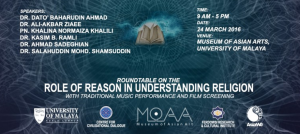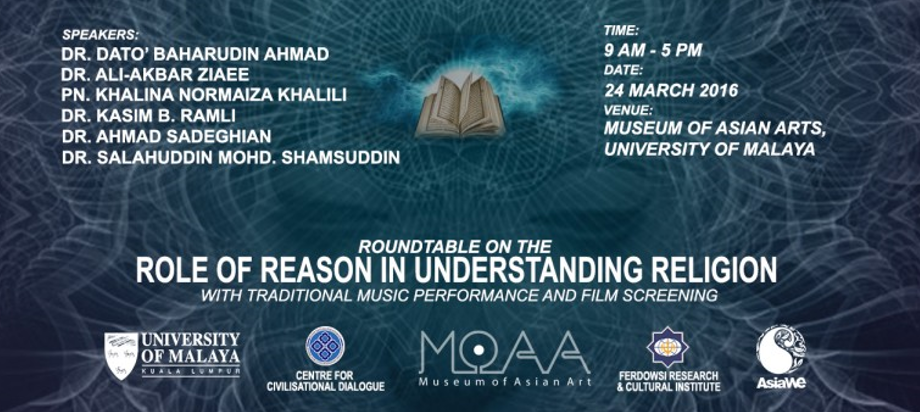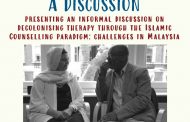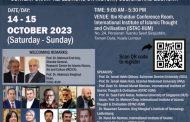The urge to understand religion as a framework that forms our perception of God through intuition, through the transcendental experience, took modern minds in the opposite directions. For some, the postmodernist philosophies strengthened accent on mystical practices like Sufism, but for some, the avoidance of healthy reason became an incentive to embrace the dubious concepts of the Islamic state. In the age of rationality, religion again requires a need for human reason to bring goodness into people’s daily lives.

Academic Seminar on the “Role of reason in understanding religion”
In 2012 the study by the group of researchers from the University of British Columbia in Vancouver showed that the difference in the type of thinking – analytical or intuitive – defines the extent of a person’s religiosity, and the increase in analytical thinking increases religious disbelief. They eventually came to the conclusion that analytical thinking is one of the factors that contribute to disbelief. It might be the truth if people were not such multi-dimensional entities. Reason and intuition are mutually complementary elements of cognition, but is one empowered at the expense of the other, thus affecting the ability to believe in transcendental? Doesn’t reason push believers towards at least a more conscious approach and concentration on inner piety rather than the formal pursuit of dogmas?
At the same time, who can provide a reasonable argumentation of where the role of reason in the understanding of religion ends and the intuitive experience, reliance on revelation should take effect? According to Kant, excessive intellectualizing of religion alienates it from the laity by taking away from average believers their comfortable right to apply religion to their daily lives, because it then requires the special class of religious thinkers to explain ‘the real meaning of the revelation. After all, our knowledge about God states Kant, is supersensible, so there can be no empirical confirmations to the reasoning about the Absolute, however, it does not prevent the possibility of reasoning as such. And yet, the property of the human’s mind to seek an explanatory totality inspired scientists and philosophers to look for the arguments for the existence of God. Were their findings of any effect to attract more believers to the faith’s side or it is always something else that affects human’s religiosity and faith?
The reason and belief, or transcendental knowledge, that comes through a sort of revelation merge in a mysterious proportion to form humans’ characters. Ibn Taymiyyah argued that reason is simply a faculty of the soul that needs the light of the revelation, as an eye needs light, to see the truth, thus implying that reason and revelation are two aspects that should be regarded as complementary rather than antagonistic.
These and other issues are going to be dissected at the roundtable by discussants of various backgrounds.
Organizers:
Centre for Dialogue of Civilizations (UM)
Asia WE Centre
date:
24 March 2016
Venue:
University Of Malaysia









